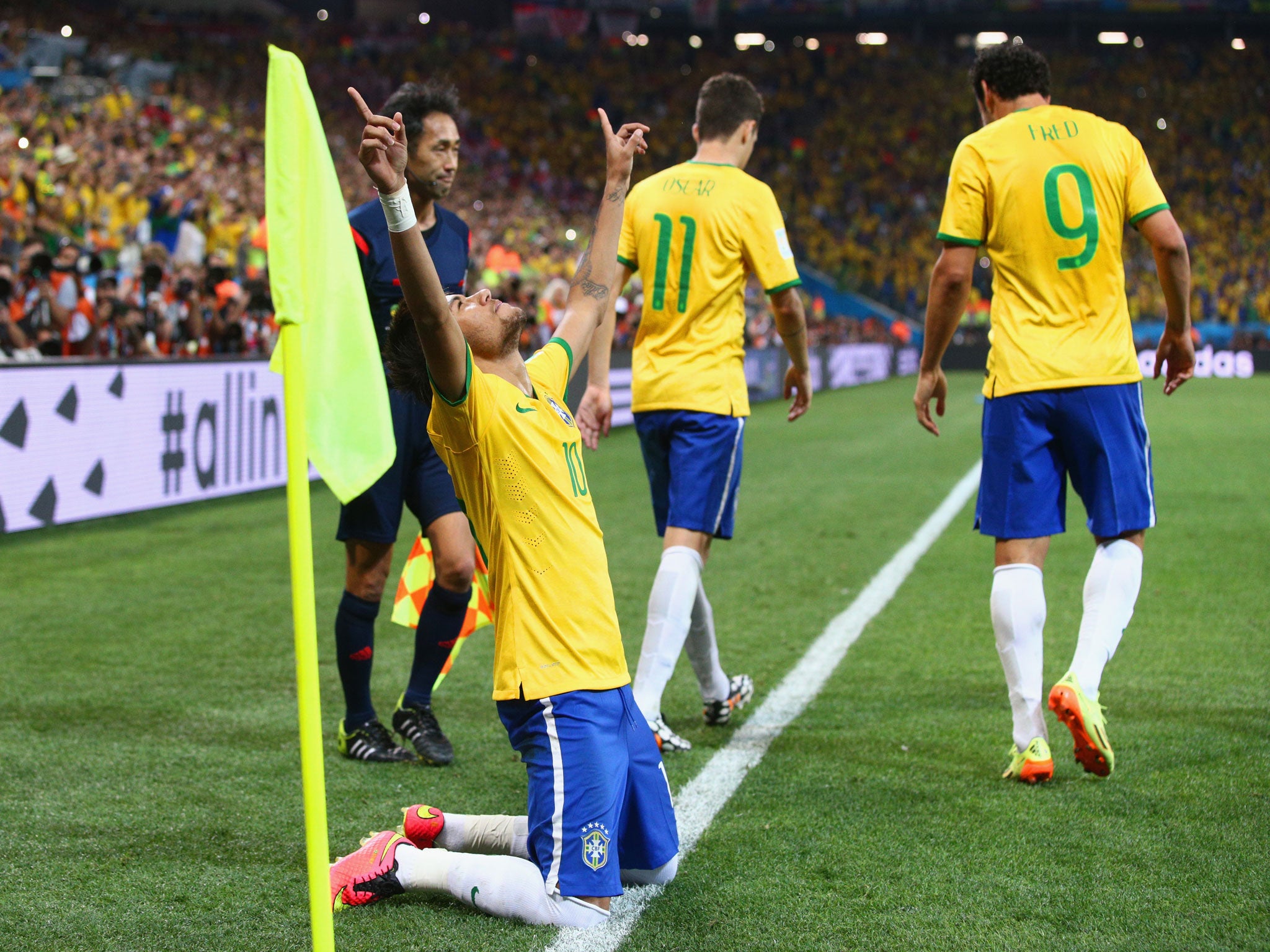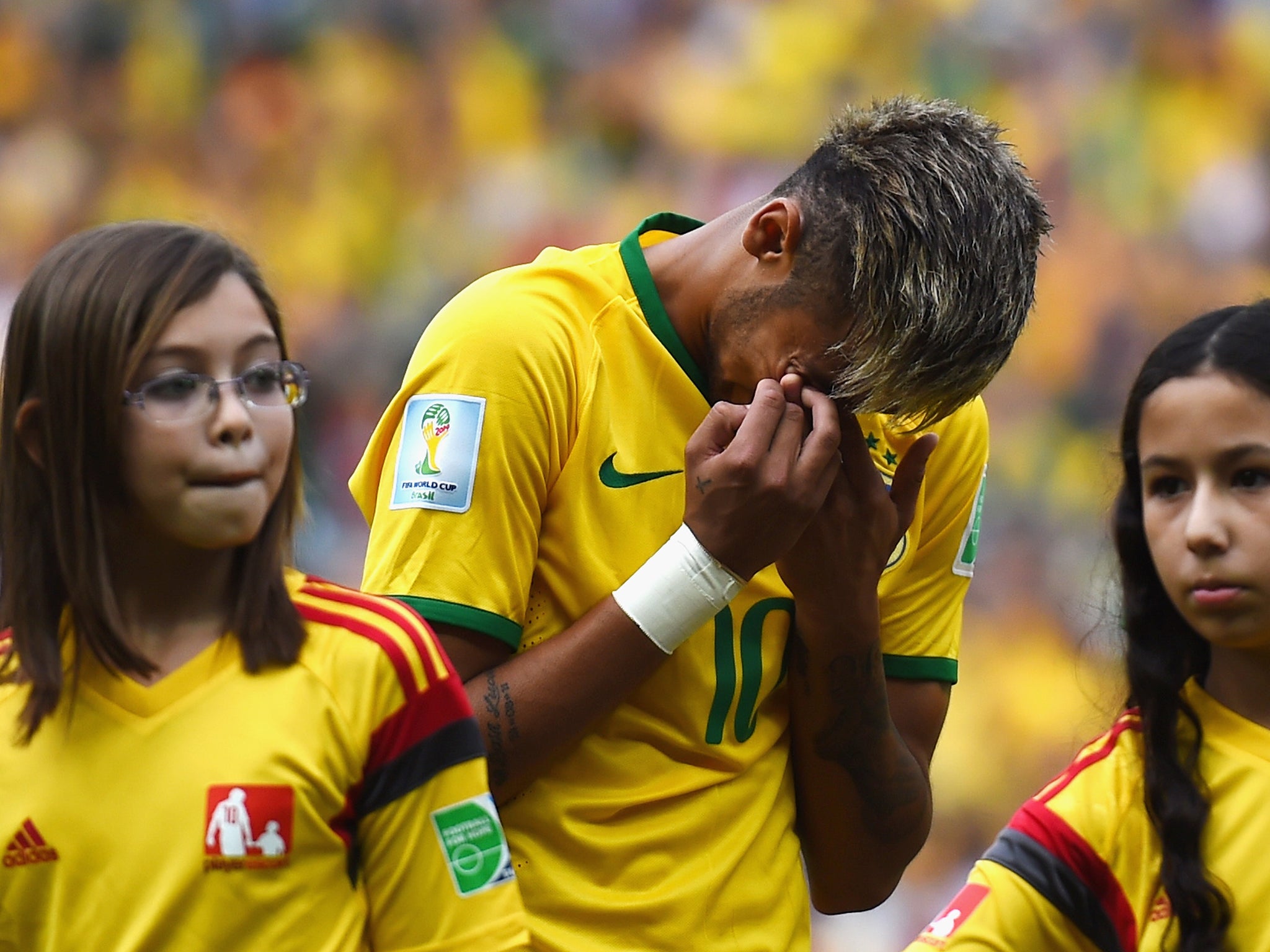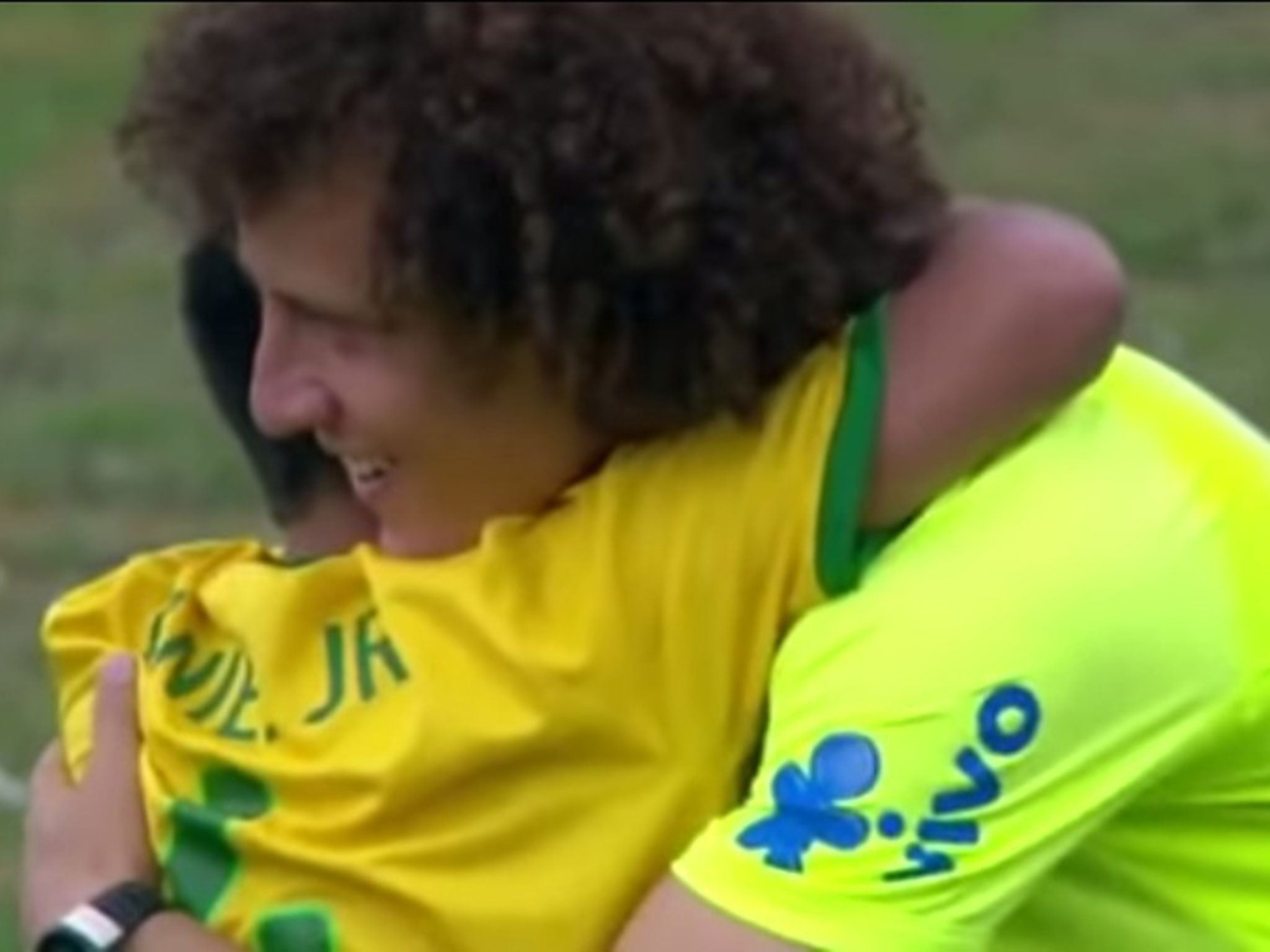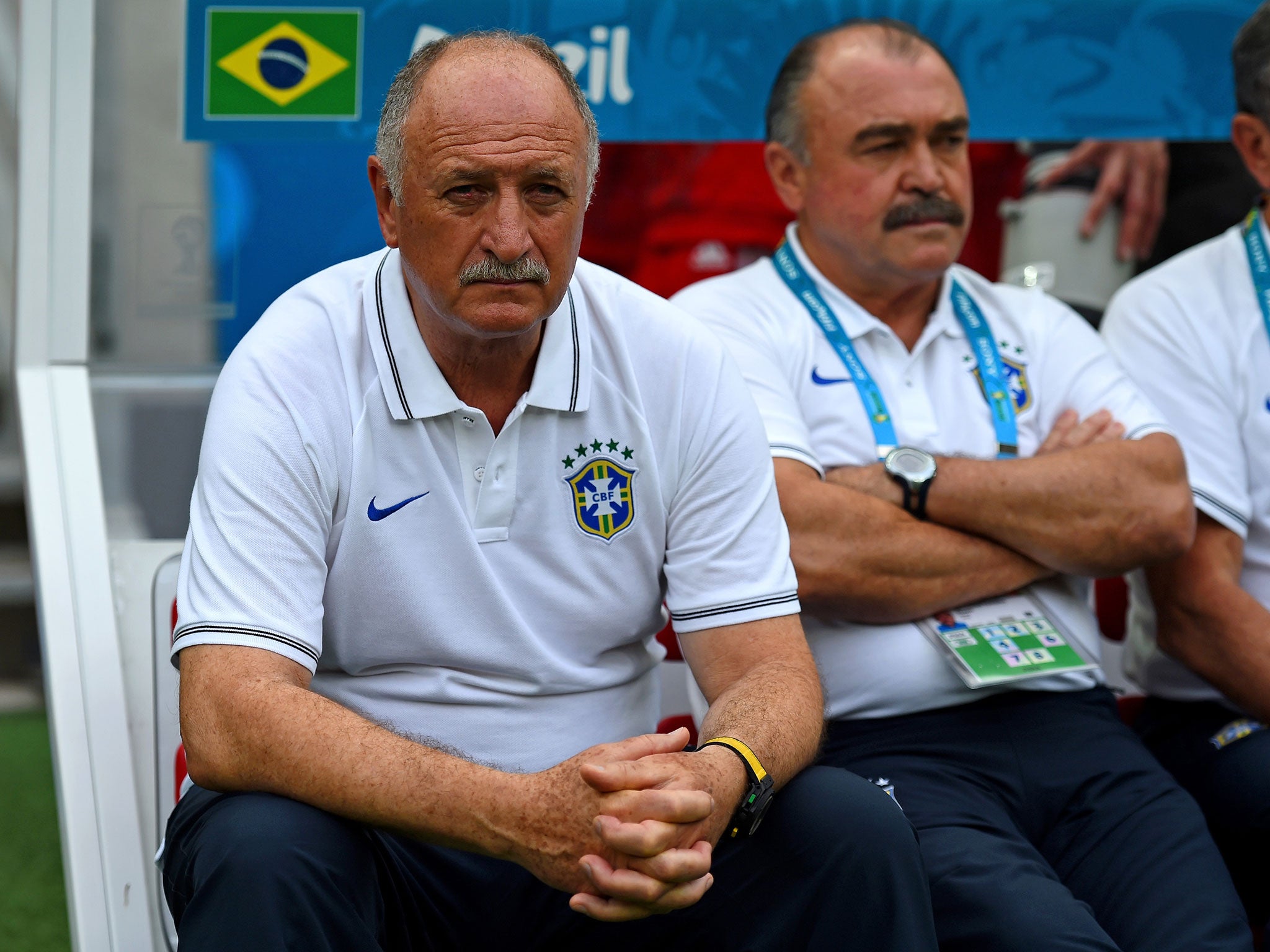Alex Bellos World Cup 2014 column: This Brazil side have forged a bond with the nation as never before
Even if they are yet to convince everyone that they are winners

Your support helps us to tell the story
From reproductive rights to climate change to Big Tech, The Independent is on the ground when the story is developing. Whether it's investigating the financials of Elon Musk's pro-Trump PAC or producing our latest documentary, 'The A Word', which shines a light on the American women fighting for reproductive rights, we know how important it is to parse out the facts from the messaging.
At such a critical moment in US history, we need reporters on the ground. Your donation allows us to keep sending journalists to speak to both sides of the story.
The Independent is trusted by Americans across the entire political spectrum. And unlike many other quality news outlets, we choose not to lock Americans out of our reporting and analysis with paywalls. We believe quality journalism should be available to everyone, paid for by those who can afford it.
Your support makes all the difference.‘Dear Neymar, I want you to be strong in this World Cup. You are really good at football… I LOVE YOU!!’
These words, handwritten in blue and red ink, are taken from one of more than 11,000 letters that have arrived in recent weeks at the training base of the Brazilian national team near Rio. In an age of social media, the volume of good luck messages sent by post is evidence of an especially strong emotional bond that the current players have with their young fans.
Last week, during his TV commentary of Brazil’s 0-0 draw with Mexico, 2002 World Cup winner Ronaldo said that his generation never had the popular appeal that the current squad enjoy.
“The Brazilian people feel much more personal affection to the national team than they have for years,” says Mauricio Savarese, author of A to Zico: An Alphabet of Brazilian Football. “They are seen as very nice boys, rather than tough guys with big egos like they have sometimes been in the past.”

I noticed this when I saw the players after the opener against Croatia. They spoke at length, and with considerable humility and charm, to the Brazilian media. You’d invite Neymar, David Luiz and Thiago Silva for tea with your grandmother. I sensed a warmth between players and press that was absent when I covered the team in the 2006 World Cup.
Savarese puts this fondness down to last year’s Confederations Cup. Most of the team had played for European clubs for years, and were not very well known back home. The Confederations Cup meant that the country had a chance to get to know them as people.

One player, however, was already very familiar: Neymar, who stayed at his local club Santos for four years before transferring to Barcelona last summer. He was the first top Brazilian player in decades to choose his domestic league over a European one for so long, and this made him a national hero.
As the focus of the team, Neymar’s personality also shapes the group. His reputation is of the good, loyal son. He is inseparable from his father, who runs his business affairs. Neymar’s father has appeared with his son in adverts and an authorised biography just out is written as letters between them.
Neymar, aged 22, has his own son with an ex-girlfriend and has embraced fatherhood, taking a prominent role in the boy’s life. His image as a caring, family man was sealed earlier this year when a South African boy ran on to the pitch at the end of a Brazil v South Africa friendly. As security guards tried to take the boy away, Neymar went over to him, picked him up and introduced him to the team.
Coach Luiz Felipe Scolari’s style is to be a gruff father figure for the Brazilian team. In 2002, the press nicknamed his squad the “Scolari family”. Yet that year there were opinionated, veteran players – Cafu and Rivaldo – who would challenge him.
In 2006, coach Carlos Alberto Parreira could not impose discipline on a team of all-stars that included Ronaldo, Ronaldinho, Robinho and Adriano. In 2010, again there were difficult characters in the group: Luis Fabiano, Robinho and Elano. But this year the team are united. Scolari is a more established figure and has no tricky egos to deal with. There is no hint of dissent or trouble. If you follow the social media accounts of the Brazilian players you will see a carnival of hugs and smiles. In fact, the use of social media, especially Instagram, by pretty much all the Brazilian squad (Neymar has 6.4 million followers, Daniel Alves 2.1 million and Thiago Silva 1.2 million) has given fans a more intimate connection with the team than ever before. Some of the images are obviously placed by their staff, but enough are genuine selfies, often with heartfelt messages to the nation, that portray them as lovable and kind.

Another uniting feature of the current team is their religiosity. Neymar comes from an evangelical background – he met the mother of his child through church – as does David Luiz, Fernandinho, Fred and others. Unlike in past World Cups, where the evangelical players have prayed separately from the Catholics, in this group religion has added to the sense of a shared experience.
The Brazilian team have yet to convince the country that they have a winning side, but they have already won over their hearts.
Join our commenting forum
Join thought-provoking conversations, follow other Independent readers and see their replies
Comments